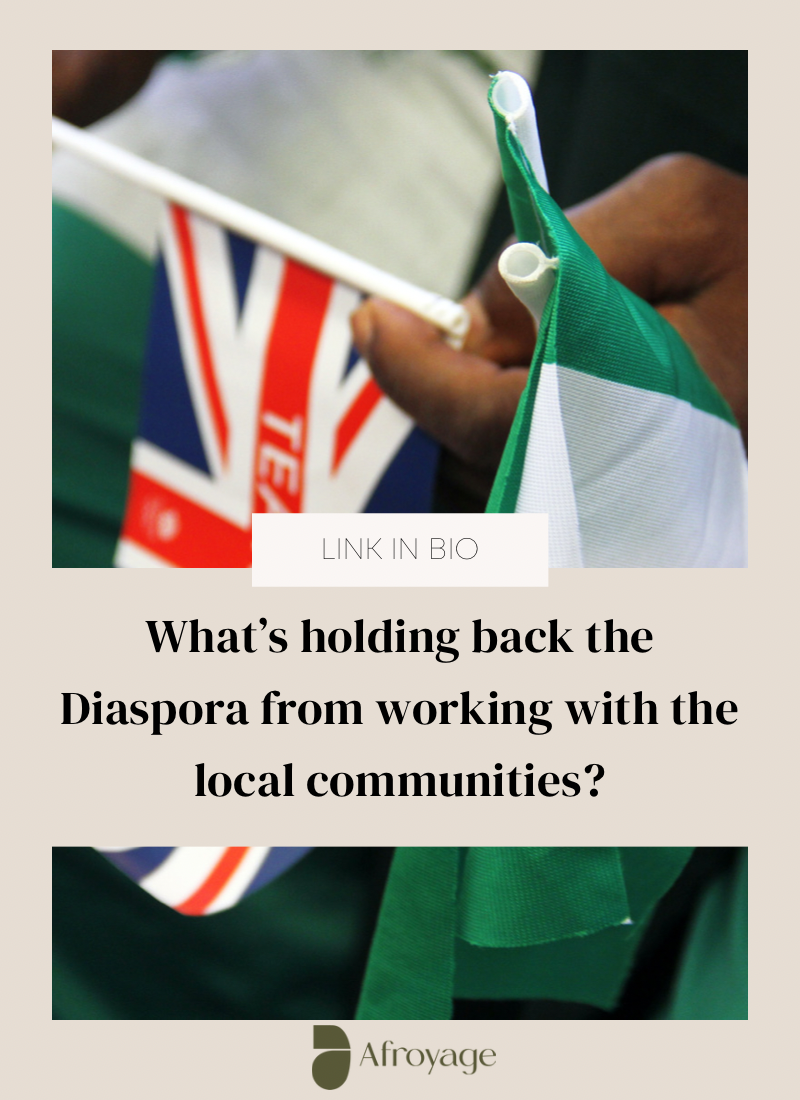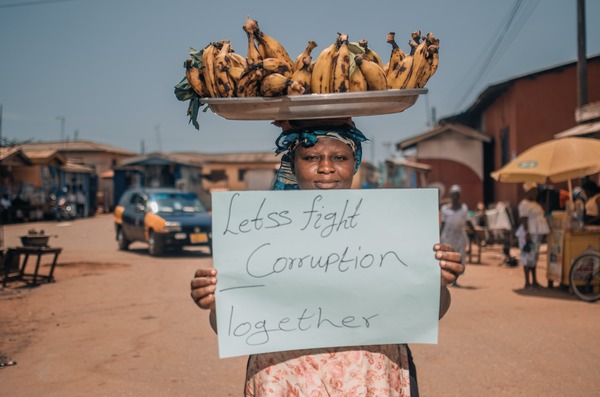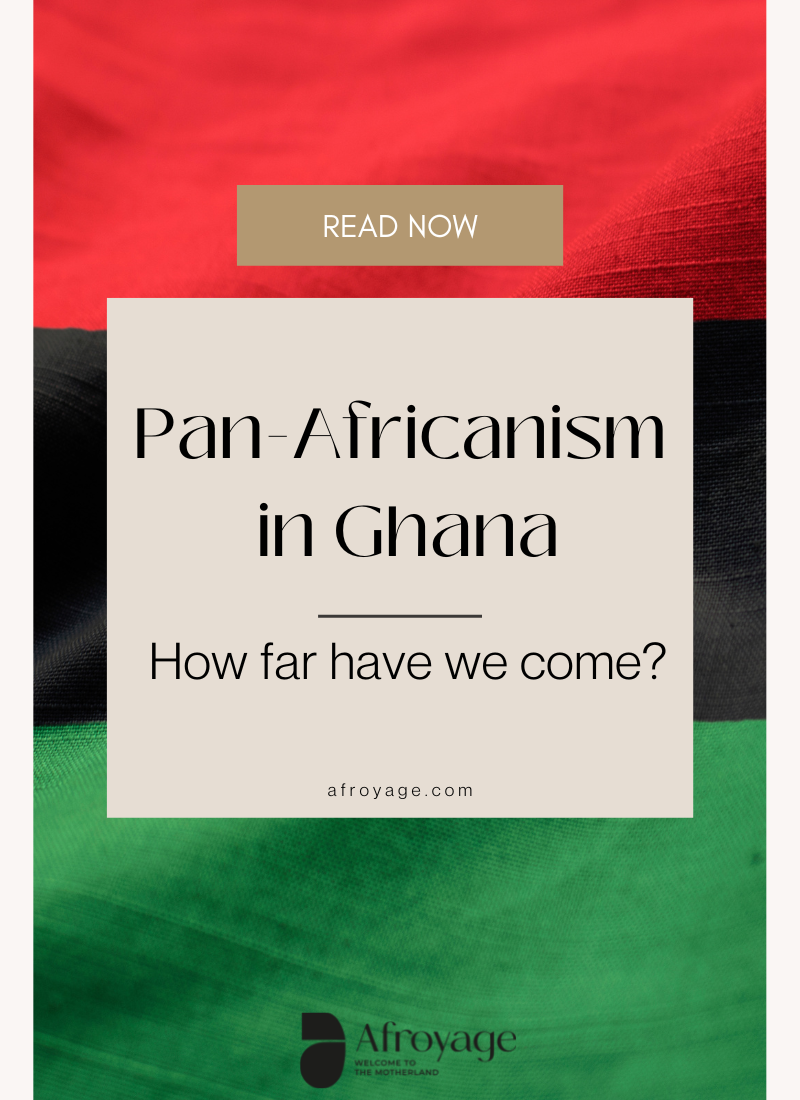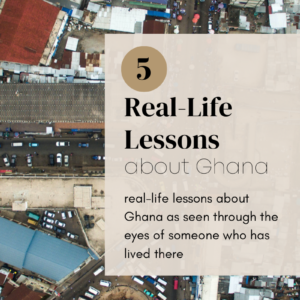It is not uncommon for Africans in the diaspora to reach out and collaborate with communities in their home countries to achieve development.
This unity of people, both at home and abroad, has been quite successful in some cases.
However, there have been instances where things have not gone as planned and little progress has been made.
What is holding back the diaspora from working with the local communities?
In this article, we’ll look at what’s preventing the Diaspora from collaborating with local communities.

Lack of Effective Communication
Effective communication is required for any two parties to work together, even between Africans and the African Diaspora.
Communication is essential, but it can be difficult to ensure that you’re communicating effectively.
Communication in this context entails the two parties taking into account each other’s interests, points of view, and history.
The Diaspora community is a diverse group of people who may not share the same experiences as many Africans. Local communities in the countries of origin are not uniform either.
As a result, understanding the interest and perspectives of both groups is critical for effective collaboration.

First and foremost, Diaspora members must consider the local context. They must be able to comprehend how their work affects a community and how best to engage it.
In order to reach this point of agreement, both parties will need to learn more about the local culture, economy, and politics.
They must also understand history, both historical and contemporary. Understanding the local’s worldview, history, and interests becomes critical in understanding one another.
The absence of the 'idea' to unite the efforts
Another factor impeding the diaspora’s ability to collaborate effectively with the local people to achieve success is the lack of an idea to unite their efforts.
In this case, the idea of combining efforts isn’t always present—and it’s certainly not obvious.
In some cases, it is not always clear to everyone involved in this process what goal they are working towards. However, the lack of a unified vision can heavily impede the progress of any vision.
To address this issue and ensure progress through collaboration, the diaspora and locals must have all team members on board who understand the problem they want to solve and are willing to commit their time and energy to achieve it.
Click here to read more about what the African Diaspora even is.

Another aspect of the absence of the concept of collaborative efforts is that of identity.
Unfortunately, some diasporans do not consider themselves to be citizens of a specific country because they left when they were young.
They may have no recollection of living in the country and thus have no ties to the people or places they left behind.
Also, their families may have moved around and lived in different countries, so they don’t feel particularly attached to any one of them.
As a result, they may feel no obligation to that country, or what they can do.
The solution is for the African government and people to raise more awareness and sensitization about the need to unite people and create programs that will bring these individuals back to their countries.
Countries such as Ghana have created programs such as The Year of Return to foster unity and provide avenues for Ghanaians in the diaspora to visit the country.
The level of corruption in many African countries has led to many Diaspora to be wary
It’s no secret that much of Africa suffers from corruption. It is not uncommon for officials to abuse their positions of power and profit illegally.
Corruption can have a significant impact on local communities, which may be unable to obtain basic services such as healthcare or education because corrupt officials siphon off public funds.
Furthermore, it can prevent locals from expanding their businesses or receiving financial assistance from Diasporans who want to invest in African communities.

African governments must exert far greater effort to prevent people from engaging in corrupt practices, which will improve the system’s sanity and encourage more people to engage in trade and investment in the motherland, among other things.
Different ways of thinking
To understand the root causes of this issue, it’s important to examine what we mean by “differences in culture”.
Culture is a set of shared beliefs and practices that influence people’s lives.
These are learned from birth through media, education, and other influences like family.
In contrast with other groups who have migrated to the same country, Diasporans do not share this same culture with local communities.
This may make them appear like outsiders and creates barriers to communication between them.

There are differences in culture between Diasporans and local communities. In terms of language use (for example, Diasporans speak English while locals speak swahili).
And at times education level (Diasporans have more education than locals) or political views, (the diaspora might be liberal and the locals might be conservative).
The key to bridging the gap between the two parties is to compromise and find a sweet spot on which both parties can agree.
We can bridge the gap and unite to solve problems within the community; whether it is finding work or getting access to health care services – because they live under similar circumstances where resources are limited but needs are high!
Reaching mutual understanding can take time
The Diaspora must learn about the local culture and understand the local context. This can take time, so we must be patient and don’t expect immediate results.
Locals must trust the Diaspora, which may take some time.
They must understand how their contributions benefit both parties involved in this collaboration as well as their communities as a whole.
There is much work to be done, but with the right approach and efforts, we can accomplish this.
There will be difficulties along the way, but we must persevere. Collaboration is a process that takes time.
If we are to make a difference, we must be more patient with one another, more understanding of one another’s cultural backgrounds and needs, more sympathetic to one another’s situations, more inclusive in our efforts, and cooperative in our approach.
We also need to be open about what works and what doesn’t in the community so that we can hold ourselves accountable for the outcomes.
While there will be many challenges along the way, we must continue to collaborate.
The impacts of the Diaspora’s contribution to the motherland cannot be overemphasized. It’s only together, through unity that we can achieve all the success.





Leave a Reply
You must be logged in to post a comment.